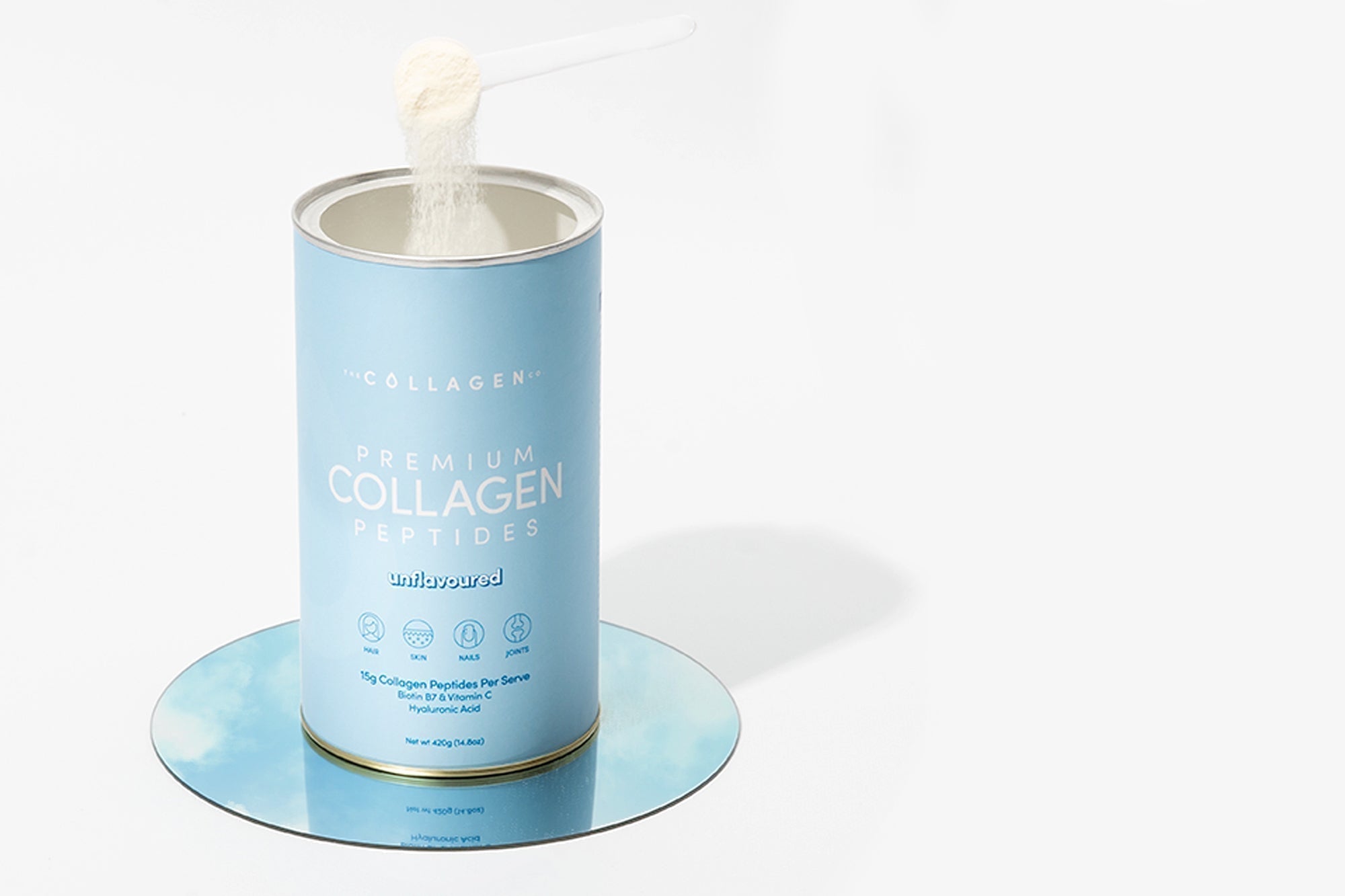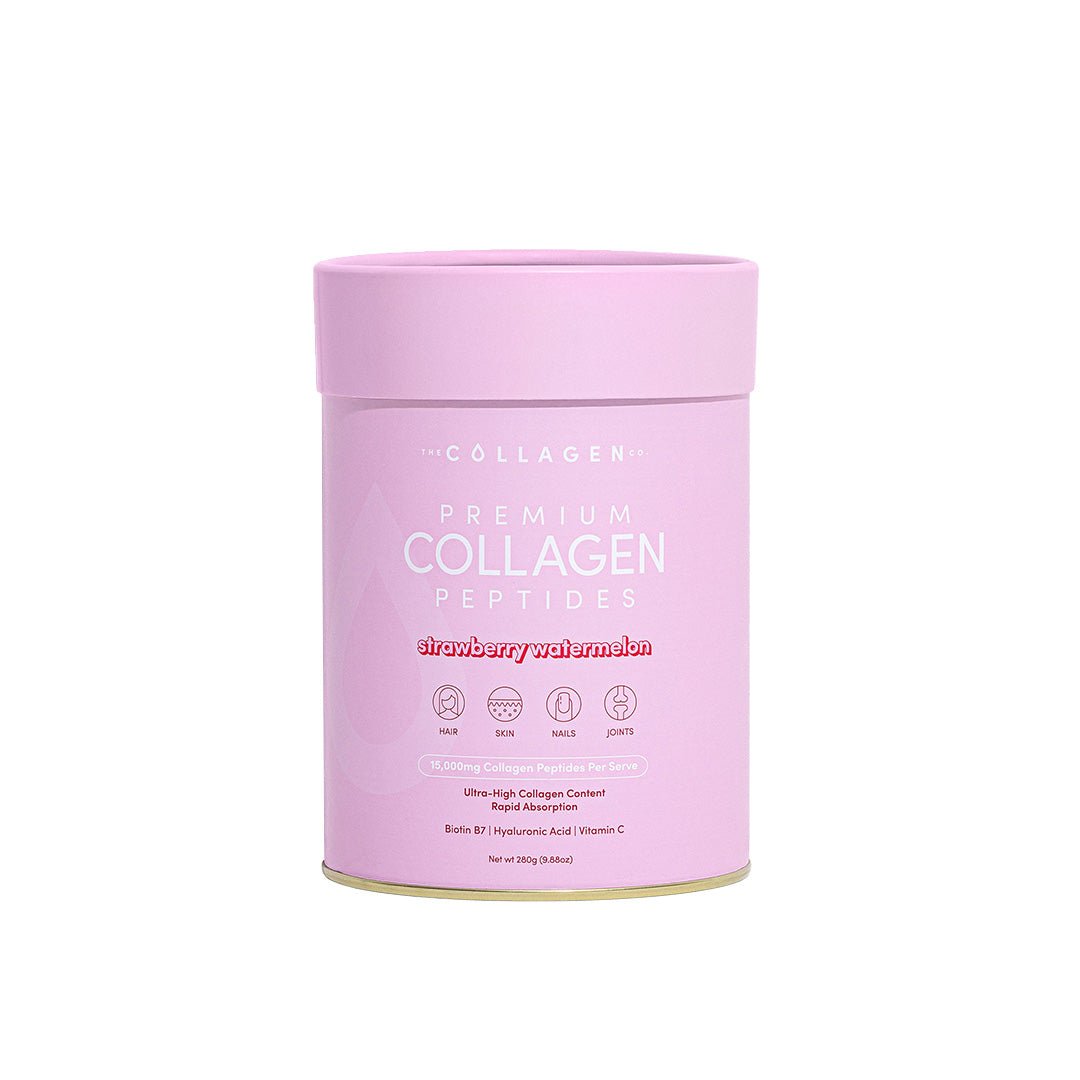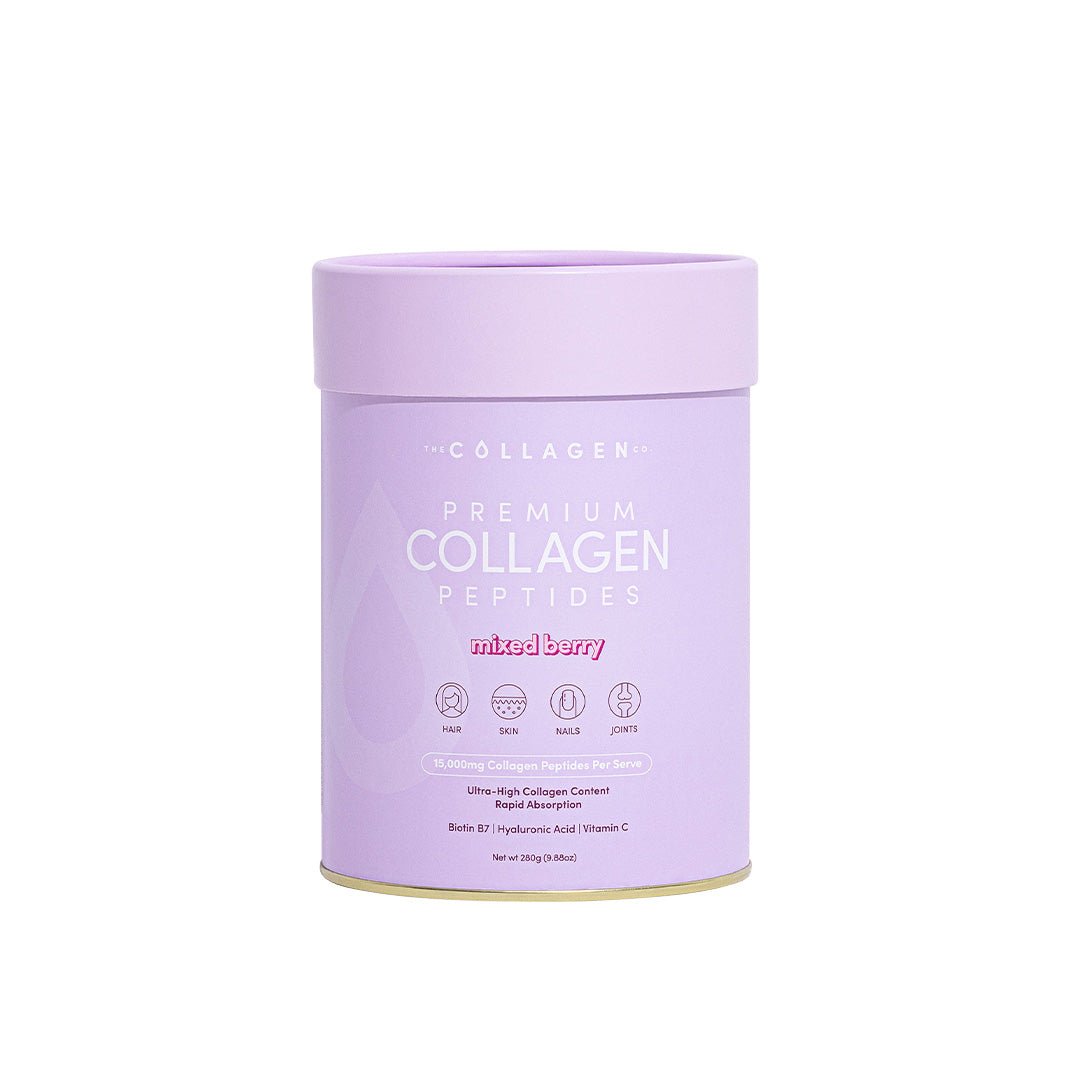What Is Collagen Type 1, 2 & 3?
Posted 3rd December 2021

Type 1 collagen; type 2 collagen; type 3 collagen – do you know the differences between these? Or perhaps … were you unaware that there were different collagen types? Learning about the different collagen types, along with the specific functions they play in the body, will help you get the most out of your supplements.
What is the difference between collagen types 1, 2, and 3?
There are 3 main collagen types (i.e., type 1, type 2, and type 3) – and they all do different things for the body. Understanding their differences, along with where you could get them, will go a long way toward helping you achieve your skin and health goals.
What is type 1 collagen?
Type 1 collagen is the most prevalent in the body, and it's responsible for providing structure to skin, tendons, ligaments, and other connective tissues. It's especially abundant in the skin, where, along with elastin, it plays the role of a "scaffolding structure", which keeps the skin resilient, plump, and bouncy in general.
So, a commonly held belief is that supplementing with type 1 collagen could prove especially beneficial for the skin. Well, guess what? Research supports this sentiment. This 2014 study, for instance, found that participants who took an oral supplement containing mainly hydrolysed type 1 collagen reported a smoother, firmer-looking, and more well-hydrated complexion after 60 days.
What is type 2 collagen?
Although somewhat less commonly found in the body than type 1, type 2 collagen is essential for a healthy body. It occurs in the cartilage found in your ribs, nose, larynx, and trachea. You can also find type 2 collagen in the cartilage that cushions the ends of your bones (allowing them to move smoothly and painlessly against each other) — in turn, explaining why research has found type 2 collagen beneficial for joint health – but not for the skin.
A 2016 study published in the Nutrition Journal found that individuals who took a type 2 stimulating collagen supplement for 180 days saw improvements in general physical function, along with joint pain and stiffness. This finding aligns with a 2018 meta-analysis, which found type 2 collagen supplements to alleviate joint stiffness in people with osteoarthritis.
What is type 3 collagen?
Finally, type 3 collagen: it works alongside type 1 collagen – and, likewise, can be found in your skin, ligaments, blood vessels, and joints. Accordingly, type 3 collagen performs the same function as type 1 collagen; it promotes skin health and elasticity. That said, it's worth noting that studies hint at type 3's ability to exert additional benefits on the skin – beyond what's typically seen with type 1 collagen supplementation.
As it turns out, type 3 collagen content in the skin decreases more drastically than type 1 does. This thus suggests that type 3 collagen might be more of a "contributing factor" to skin aging and all the visible symptoms that come along with it – including hyperpigmentation, wrinkles, fine lines, and sagging. Also: the fact that the body needs type 3 collagen to synthesize type 1 makes this line of thought extra convincing.
What’s the best type of collagen to take?
Well, as you can tell, each collagen type performs a slightly different role in the body. As such, asking the question, “What’s the best type of collagen to take?” is a little like asking, “What’s the best fruit to eat?” Each fruit offers a unique blend of micronutrients that you may not find in another. The same goes for collagen types: whether you go for type 1, type 2, or type 3 ultimately depends on the condition you’d like to improve. For skin health, you should look toward types 1 and 3, and for joint health, go for type 2 collagen.
Can you take type 1, 2, and 3 collagen together?
Would it be possible to get the best of both – no, wait, all – worlds by supplementing with types 1, 2, and 3 collagen at the same time? Well, you could. But there's a caveat: this is only possible with bovine collagen(i.e., a naturally occurring collagen found in the cartilage, bones, and hides of cows).
In comparison to marine collagen, which is primarily a source of type 1 collagen, bovine collagen is known to contain types 1 and 3 collagen – the combination of which appears capable of increasing even type 2 collagen production in the body (note: this is only applicable for selected hydrolysed bovine collagen, like the ones at The Collagen Co).
Of course, this doesn't necessarily mean that you should shun marine collagen for its bovine counterpart. The fact that the latter could increase type 2 collagen won't matter if you’re unable (or unwilling) to consume meat, anyway. Ultimately, supplementing with marine collagen would be better than not taking collagen at all.
And for those looking for high quality, sustainably sourced bovine collagen supplements? You can find them here. (Our bovine are grass-fed, pasture-raised, and always happy!)









































